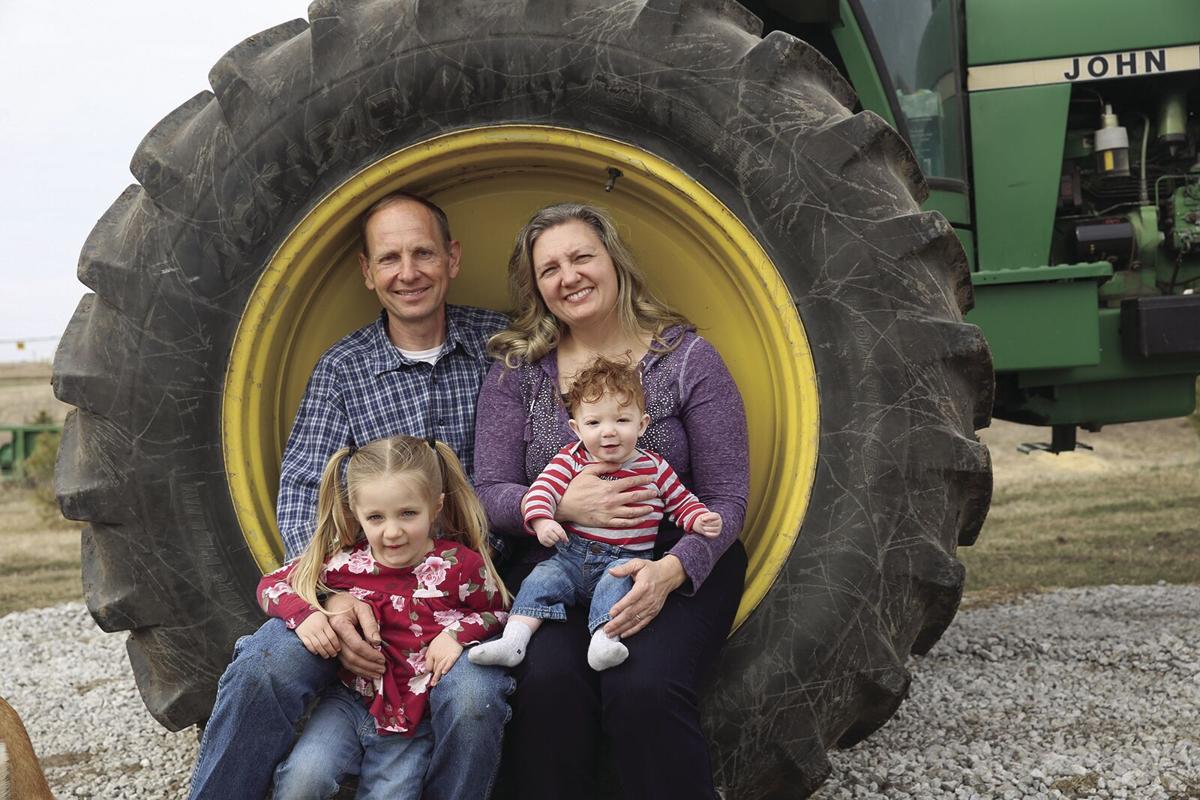It took some convincing, a lot of thinking and plenty of innovating, but the Heinze Family in Bradshaw, Nebraska, took on an organic farming adventure.
Originally a conventionally-run farm, one of those crops translated into an ideal transition into organic farming—but it took time.
“For a number of years, we had been raising a fair amount of alfalfa to try to increase the amount of income,” said Edwin Heinze. “Because we were raising alfalfa the processing facility advised blue corn; their best quality blue corn comes from prior alfalfa.”
“Our processer was looking at it, saying we could be organic right away,” said Diane Heinze. Alfalfa, which ideally is untreated, lends itself to transitioning into organic production.
Heinze and his wife Diane were curious, but unconvinced. “I was liking the idea, my mind wanted to go that direction but also we realized the immense amount of paperwork and logistics to get there. We investigated, we slightly started and kind of gave up,” Edwin Heinze said.
For years the processor periodically checked in with the Heinzes in an effort to get them to take the plunge. “We knew we wanted to do something different,” Edwin Heinze said. “He called me back three years in a row.”
Now the farm has rows of organic crops: alfalfa, blue corn, popcorn, soybeans and edible field peas. However, it took baby steps, starting with one field of non-GMO blue corn, which as raised wasn’t completely organic. “It wasn’t organic but it was the same seed,” Edwin Heinze said. Transitioning the field to organic was the natural next step. “We discussed the paperwork and logistics with certifying and having the whole record-keeping process. It was just overwhelming,” Edwin Heinze said. “[The processor] said, I’ll help you with that.”
After years of collaborating with fellow organic producers and their processor, the Heinzes’ operation was fully organic. “We did one field at a time,” Edwin Heinze said. “We got them certified, went through the processes and we decided it was worth it. Knowing the benefits of organic and knowing we’ve done all the other steps now, we’ve just got to figure out how to do the same things without herbicides, without insecticides.”
“Since then, we’ve been continually doing that process and now everything is 100% organic.”
No operation—organic or otherwise—is perfect. “It’s a very long, slow learning curve,” Edwin Heinze said. “We usually have some fields that turn out fairly well and we have some fields that are just a disaster; it’s like, wow we don’t want that to happen again.”
The Heinzes said they don’t look down on conventional farming in any way; this has been a journey they have chosen to embark on. The only separation from their neighbors are the buffer strips between conventional farm ground and the Heinzes organic ground. The couple speaks of their neighbors in high regard, Edwin Heinze even going so far as calling them “patient” with and “understanding” of the way the organic farm ground occasionally appears.
Farming in general depends on the elements, but growing organic crops brings timing and planning (when possible) to another level. “The organization and the timing of being ready to go right on the perfect day is critical,” Edwin Heinze said. “We can’t come back a week later and say, oh we’ve got lots of weeds escaping, we’re just going to come spray.” For weed control, the Heinzes currently utilize flaming and rotary hoeing.
Flame weeding is literally burning weeds using a flame. Special equipment is made for this method, which is best used on weeds in their earlier stages (about 1-4 inches). It is a highly effective method.
“The challenges with the organic are weed pressure. If we’re trying to fight weeds but aren’t able to use a chemical herbicide, that means we’re going to find other natural methods. A big part of that is organization, timing—when we plant, getting out and cultivating at the right time, how that fits in with the weather,” Edwin Heinze said.
As much as organic farming benefits from collaboration between producers, there is still a degree of experimentation. “When you run into problems [farming conventionally] there’s always a company that will try to sell you a product or something you can apply to a field to fix a problem, but when you look deep into it it’s really not actually a solution. It’s just a band-aid,” Edwin Heinze said.
Despite all of the paperwork, regulations and experimentation, the Heinze family approaches their operation modestly (“It’s a small farm,” Diane Heinze said.) and spiritually.
“We’re trying to look at why a problem is occurring and if there’s a way that God would have designed this to work better,” Edwin Heinze said. “It’s a learning curve; it’s a change, but we’ve been trying to figure out how to do things closer to nature—the way God designed it.”
Reprinted with permission by York News-Times.
To view source article, visit: https://yorknewstimes.com/news/local/organic-by-design-bradshaw-farm-adapts/article_7bc01f62-882c-11eb-9e3e-87c1d804af40.html
Organic & Non-GMO Insights April 2021









